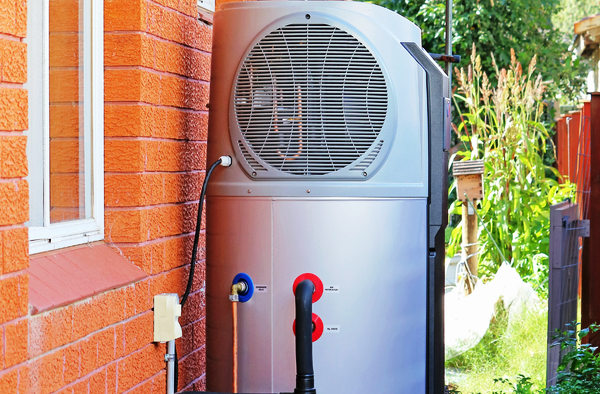NSW government’s hot water system energy savings efforts
Share

The NSW Office of Energy and Climate Change (OECC) has announced several proposed changes to the current Energy Savings Scheme (ESS) for hot water system upgrades. The changes are intended to improve energy savings in hot water system upgrades, ensure consumers have more stake and thus interest in their upgrade process, and align current ‘hypothetical’ energy savings calculations with real-world results. Through this exercise, the government hopes to enhance customer engagement while also ensuring energy savings are more accurately calculated.
Co-payments: increasing customer engagement
Some upgrades under the ESS have required co-payments since 2014. These payments have helped make upgrades under the ESS more accessible to households and businesses. However, the current $30 (ex GST) co-payment for residential hot water system upgrades and the lack of similar co-payments for small businesses and commercial upgrades have presented challenges. These include reduced customer engagement, a perceived lack of legitimacy, and increased instances of high-pressure sales tactics.
Efficient Energy Group (EEG) is an accredited certificate provider (ACP), and the company’s CEO, Joshua Liptak, says the rationale behind co-payments is sound. “They’re there to encourage customer participation in their upgrade projects and help offset the cost of the upgrade. However, the problem for the OECC and the government is that when it’s set too low, customers may not be engaged enough to ensure they receive a quality product. Conversely, set the co-payment too high, and it may deter them from getting upgrades done at all. The effectiveness of co-payments therefore depends on the right balance being struck between these two elements, and that’s what these proposed changes are trying to do.” He added, “The current co-payment also doesn’t adequately factor in the high value of the products being installed, which then risks subpar upgrades.”
The new NSW ESS hot water system upgrade co-payment proposals
To help resolve these issues, Liptak says the OECC has proposed the government implement a revised co-payment structure for hot water system upgrades that encourages better customer engagement and ensures quality products are used. This change will see a uniform $200 (ex GST) co-payment introduced across all hot water upgrades—residential, small business, and commercial.
Summary of NSW ESS hot water system upgrade co-payment changes
According to Liptak, the government is therefore seeking to implement the following changes:
- Introduction of a new minimum $200 (ex GST) co-payment for each water heater installed in Activity Definitions D17-D21
- Inclusion of a minimum $200 (ex-GST) co-payment for each commercial heat pump hot water heater installed in Activity Definitions F16 and F17
Further to these, the existing $30 (ex GST) co-payment for the entire residential and small business lighting upgrade in Schedule E will remain in place, at least for the time being.
Revised baselines for accuracy
In other proposed changes, Liptak says that the OECC has found “there is a significant gap between ‘theoretical and real-world’ energy savings with respect to hot water use. To rectify this, the government will seek to revise its baselines so they better reflect a real-world daily hot water usage pattern. The OECC recommends dropping this baseline from the current 60 litres to 45 litres per person per day and splitting calculations across the state’s 2 heat pump hot water climate zones.”
IPART also announces independent testing of ESS listed products
Furthermore, scheme regulators IPART (Independent Pricing and Regulatory Tribunal of NSW) have announced they will also initiate independent testing of products listed under the ESS to ensure they comply with the necessary efficiency and reliability standards. This will help reduce the incidence of complaints about subpar equipment and increase the longevity of the scheme.
Key distinction: NSW ESS co-payment coverage
It’s important to note that co-payment coverage differs between schedules. In Schedule E, covering lighting and other equipment upgrades, the co-payment applies to the entire implementation. In schedules D and F, it applies to each item of end-user equipment listed on the product register.
Proposed implementation timeframes
The proposed changes are currently undergoing an industry consultation process and are expected to take effect around 3 months after the conclusion of that process.
Efficient energy group: your trusted acp partner for hot water system upgrades
Efficient Energy Group (EEG) is an accredited certificate provider (ACP) working with the NSW government to help reduce energy consumption, greenhouse gases, and power bills throughout NSW, Queensland, and Victoria.

Justin Lavadia is a content producer and editor at Public Spectrum with a diverse writing background spanning various niches and formats. With a wealth of experience, he brings clarity and concise communication to digital content. His expertise lies in crafting engaging content and delivering impactful narratives that resonate with readers.




Today’s Pick
11th Annual Aus Goverment Data Summit
April 1, 2025
7th Annual NZ Government Data Summit
May 7, 2025
3rd Public Sector Comms Week
May 14, 2025
Subscribe
We send emails,
but we do not spam
Join our mailing list to be on the front lines of healthcare , get exclusive content, and promos.
AI appointment Australia Australian boost boosts business businesses covid-19 cyber attack cybersecurity cyber security data data breach data management defence Digital employment enhance enhances fraud funding governance government grants Healthcare infrastructure Innovation Lockdown management new zealand NSW NZ online privacy public Public Sector queensland renewable energy scams security Social Media Technology telecommunications victoria
-

Understanding and building your digital strategy
Digital Government, Opinion
-

Featured Leader: Jamie Morse on multi-channel strategies for communication
Communications, Featured Leader
-

Featured Leader: Tegan Tembe of NSW Treasury on creating solid planning strategies and processes
Featured Leader
-

Wirraka Maya Health Service improves patient care with My Health Record
Learning
Show More-

Effects of ineffective communication in the workplace
Communications, Personal Development
-

7 ways you can enhance your personal development skills
News, Personal Development
-

5 advantages of working in the public sector
News, Personal Development, Professional Development
-

7 causes of communication issues in the workplace
Communications, News, Personal Development
Show MoreLast Viewed